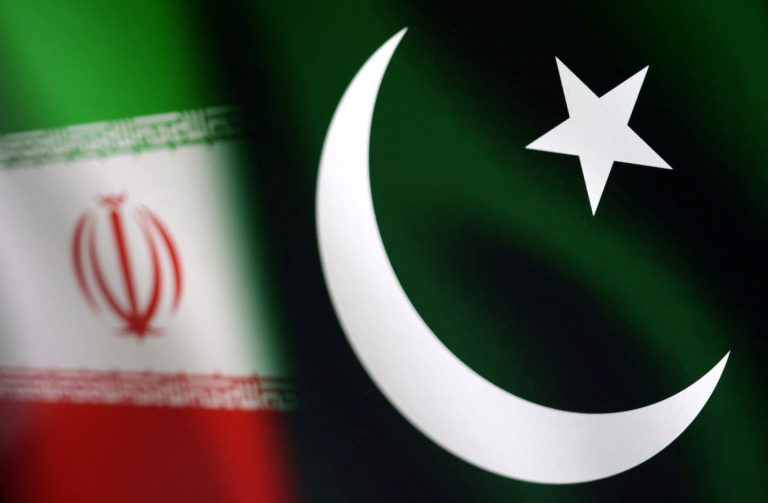On Tuesday, Iranian missiles allegedly struck targets belonging to Jaish al-Adl, a radical Sunni fundamentalist group that has historically found sanctuary in Pakistan and which Iran says is linked to an Islamic State terrorist attack on a high-profile gathering in the city of Kerman. Which claimed the lives of at least 91 people earlier this month.
Tehran said it struck “strongholds” of the militant group, but Pakistani authorities reported civilian casualties, including the killing of minors. Then, amid howls of anger among the general public and Pakistan's political class, Pakistan hit back on Thursday. It said it struck targets on Iranian territory belonging to the separatist Balochistan Liberation Army and the Balochistan Liberation Front “using drones, missiles, loitering munitions, and stand-off weapons.” Iranian official media reported that at least nine people were killed, including three women and four children.
Hostilities between the two countries periodically erupt due to the noticeable presence of rogue elements on both sides of the dusty border. But the current round is striking – the Pakistani attack on Iranian territory is the first major declared strike on the country's territory by a foreign power since the bloody Iran-Iraq war in the 1980s. The previous Iranian missile bombing led to Pakistan withdrawing its ambassador from Tehran.
There may be no full-blown crisis on the horizon. Given the many geopolitical troubles facing both countries, neither is in the mood for conflict to escalate. The Pakistani statement that followed its retaliatory actions closely mimicked Iranian language earlier in the week — a sign, some analysts believe, that Islamabad is keen to draw a line under the dispute. Other regional actors are already working behind the scenes to calm tensions.
“Neither side wants further escalation, and China, Saudi Arabia and the UAE, which have interests in stabilizing Southwest Asia, have been busy mediating,” Vali Nasr, a professor at the Johns Hopkins School of Advanced International Studies, told me. “The crisis is unlikely to escalate, but it has harmed Iranian-Pakistani relations.”
Muhammad Taqi, a Pakistani columnist and commentator, pointed to the meticulous design surrounding the incident. “Carefully coordinated statements from both Iran and Pakistan” Taqi wrote on social media. “Neither side seems interested in anything more than killing Baloch on opposite sides.”
This shared mystery is smoldering in the background. For both Iran and Pakistan, Balochistan – whose unforgiving terrain and temperatures nearly annihilated the returning armies of Alexander the Great more than two millennia ago – represents a thorny security challenge. Balochistan's parallel provinces on both sides of the border are vast and sparsely populated. Pakistan's Balochistan province comprises more than a third of the country's area but only 5 percent of its total population. Iran's Sistan and Baluchestan Province is the second largest province in the country, but is home to only 3 percent of Iran's population.
In either governorate, local communities live a long and complex history of rebellion and grievance against the central state. “Both Iran and Pakistan have for years portrayed insurgencies in the border region as partly rooted abroad,” my colleagues said. While Pakistan has accused Tehran of turning a blind eye to militants operating from Iran, Iranian officials have said in the past that Jaish al-Adl is hiding in Pakistan and receiving Israeli support.
Both Tehran and Islamabad see the border regions on the other side as potential hotbeds of anti-state activity, drawing in the covert assets of various hostile forces — from Israel to India to the United States. Jaish al-Adl and its predecessor, the al-Qaeda-linked Jundallah group, are playing on Shiite Iran's alleged repression of the Sunni minority to rally local residents to support its armed cause.
“The only thing we ask from the Iranian government is to be citizens. We want to have the same rights as the Iranian Shiite people. That’s all. We don’t want discrimination,” Jundallah founder Abdul Malik Rigi said in an interview with Al Arabiya in 2008. Between Sunnis and Shiites in this country.” He was arrested and executed two years later.
None of the groups targeted by Iran and Pakistan can claim to represent a significant majority of Baloch public opinion. In the early 20th century, the Iranian monarchy crushed multiple uprisings from various Baloch tribes and sought to undermine their political identity by redrawing provincial boundaries and forcefully resettling some Baloch communities. The modern Pakistani state also faced waves of Baloch rebellions, which began just one year after Pakistan's independence in 1947.
Meanwhile, cash-strapped Pakistan is seeking some stability and calm in its restive Balochistan province, which is the site of major Chinese-backed infrastructure projects, including a historic port and an envisioned trade corridor that could help revive Pakistan's sluggish economy. . These initiatives have faced delays, some due to the impact of the long-running separatist insurgency.
For Iran, the strikes on Pakistan were a matter of saving face. The explosions that occurred at the beginning of the year in Kerman targeted a gathering of thousands of people to mourn the fourth anniversary of the assassination of the influential Revolutionary Guard commander, Major General Qassem Soleimani. The powerful paramilitary establishment within the theocratic state had to respond.
An informed source close to the Iranian government told Reuters that the attacks were an “embarrassment to the leadership.”

